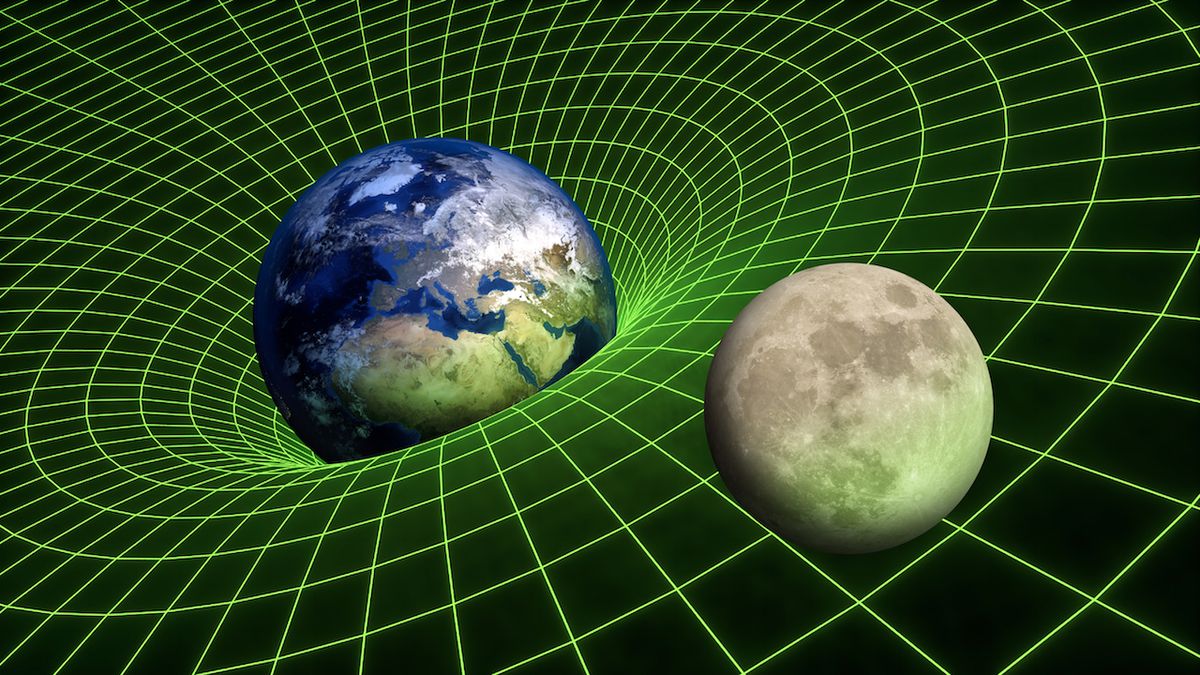What is Gravity?
- Home
- chevron_right
- Astronomy
- chevron_right
- What is Gravity?
Gravity, the unseen force that governs the cosmos, is a phenomenon that has captivated the minds of scientists, philosophers, and curious minds throughout the ages. From the apple that fell on Sir Isaac Newton’s head to the cosmic ballet of celestial bodies in space, gravity is an ever-present and influential aspect of our universe. In this comprehensive exploration, we delve into the intricacies of gravity, from its fundamental principles to its cosmic implications.
What is Gravity?
Gravity, in the realm of physics, is the force of attraction between two masses. This force is proportional to the product of their masses and inversely proportional to the square of the distance between their centers. Sir Isaac Newton, in the 17th century, formulated the law of universal gravitation, providing a mathematical framework to understand and predict the behavior of objects under the influence of gravity. Gravity, as a concept, involves several key components that shape our understanding of this fundamental force.
Mass and Weight
The mass of an object is a measure of the amount of matter it contains, while weight is the force exerted on an object due to gravity. On Earth, where gravity is relatively constant, weight is directly proportional to mass. However, this relationship changes in environments with different gravitational forces, such as the Moon or Mars.
Acceleration Due to Gravity
Near the Earth’s surface, all objects experience a constant acceleration due to gravity, approximately 9.8 meters per second squared. This acceleration is what gives objects their weight and governs the trajectory of projectiles.
Gravity on a Cosmic Scale
Expanding our perspective beyond terrestrial confines, gravity plays a pivotal role in the grand dance of celestial bodies.
Orbital Mechanics
The gravitational pull between celestial bodies, such as planets and moons, governs their orbits. This delicate balance of gravitational forces ensures that planets revolve around stars, moons orbit planets, and satellites trace their paths in space.
Black Holes
In the cosmic arena, gravity reaches extremes in the form of black holes. These mysterious entities possess gravitational forces so strong that not even light can escape their grasp. The study of black holes provides insights into the limits of our current understanding of physics.
Gravity’s Influence on Time and Space
Gravity, as described by Albert Einstein’s theory of general relativity, is not just a force of attraction; it’s a curvature of spacetime itself.
Time Dilation
Near massive objects, time appears to move slower. This phenomenon, known as time dilation, has been experimentally confirmed and is a consequence of the warping of spacetime by gravity.
Gravitational Waves
Another prediction of general relativity, gravitational waves are ripples in spacetime caused by the acceleration of massive objects. The detection of gravitational waves in recent years has opened a new era of observing the universe, providing a unique window into cataclysmic events like merging black holes.
Gravity and the Search for the Grand Unified Theory
As we peer into the depths of the cosmos and the subatomic realms, scientists strive to reconcile gravity with the other fundamental forces of nature. The quest for a Grand Unified Theory (GUT) aims to merge gravity with the electromagnetic, weak, and strong nuclear forces, providing a comprehensive understanding of the universe’s fundamental workings.
Conclusion
In conclusion, the force of gravity is woven into the fabric of the universe, influencing everything from the smallest particles to the grandest galaxies. As we continue to explore and unravel the mysteries of gravity, we find ourselves on a journey of scientific discovery that transcends the boundaries of space and time. From the apple falling to the ground to the detection of gravitational waves, each revelation deepens our understanding of this fundamental force.
Gravity, with its unyielding pull, beckons us to explore further, to question the nature of reality, and to seek a unified understanding of the forces that govern the cosmos. In our quest for knowledge, we are bound by the gravitational ties that connect us to the vast tapestry of the universe.
References:
Table of Contents
Recent Posts
- What is Gravity?
- whirlpool galaxy (Messier 51); Facts, Location, Type
- Astronomy; Definition, Types, History and Facts
- Draco Constellation; Facts, Myth, Location, Stars
- Cassiopeia Constellation: Facts, Myth, Location, Stars
- Zodiac Constellations; Facts, Stars, Symbols, Dates, Signs
- Atik Star Omicron Persei; +10 Facts, Myth, Features
- Algol Star β Persei; +10 Facts, Myth, Features
Suggest Posts
- What is Gravity?
- whirlpool galaxy (Messier 51); Facts, Location, Type
- Astronomy; Definition, Types, History and Facts
- Draco Constellation; Facts, Myth, Location, Stars
- Cassiopeia Constellation: Facts, Myth, Location, Stars
- Zodiac Constellations; Facts, Stars, Symbols, Dates, Signs
- Atik Star Omicron Persei; +10 Facts, Myth, Features
- Algol Star β Persei; +10 Facts, Myth, Features
Categories

Nazanin Teymoori
Hi there, I am Nazanin, a member of the Aquilae Constellation team. And also the author of all the texts of this blog.
I am delighted that after many years of great interest in astronomy, I launched this website with the help of our professional team. We have many challenges ahead of us, but we promise ourselves that we will overcome everything.
I love astronomy So Let's go





